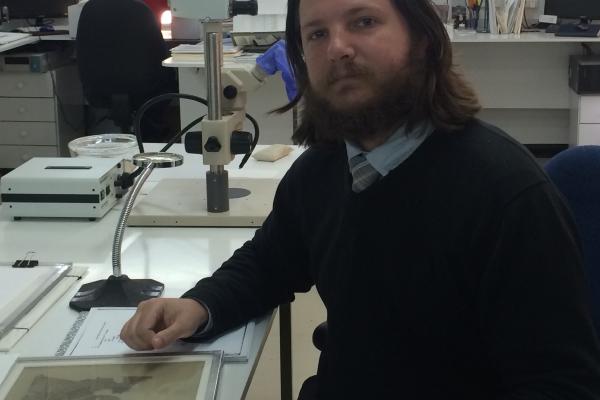
Though the layman hardly ever notices it, the issue of state-management is a fundamental and perennial problem in computer data systems engineering. While the question of state has also been a mainstay of philosophical inquiry as well as a focus of the field of physics (particularly heightened in the discipline of quantum mechanics), these three fields of application seem to largely talk past each other. This presentation will attempt to situate the practical problems computational systems face regarding the establishment of “truth” within the broader concepts provided by philosophical inquiry and physics research.
This event will include a hybrid option for those who cannot make it to the event in person. The link will be sent to registrants no later than 24 hours before the scheduled start time.
Register below or via https://library.osu.edu/events/digital-humanities-series-digital-humanities-in-realtime-physicalcomputational-constraints
About the Speaker:
Bronson Brown-deVost works as Semitist and programmer/IT specialist for the longterm German Research Foundation project Qumran-Digital Text und Lexikon Project at the Göttingen Academy of Sciences in Niedersachsen. He has published widely in the academic journals for Biblical and Qumran studies and has authored or co-authored several articles in the field of digital humanities, especially in the realm of Handwritten Text Recognition projects. His 2015 Brandeis dissertation “Commentary and Authority in Mesopotamia and Qumran” was awarded the Nahum and Anne Glatzer Endowed Prize in Near Eastern and Judaic Studies and was revised for publication with Vandenhoeck & Ruprecht in the Journal of Ancient Judaism Supplement Series 29 (2019). He has resided in Göttingen Germany with his family since 2016 after receiving a 5-year post-doc position there with the German-Israel Cooperation Project Scripta Qumranica Electronica. He is heavily involved in the DH community and has served in an advisory role to a number of projects in Israel, Europe, and the US.
